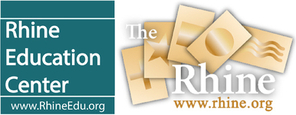Syllabus: Dreams & Altered States of Consciousness
Course Summary
This survey course will examine altered states of consciousness (ASC) including those induced by meditation, hypnosis, sensory deprivation, music, and substances. ASCs will be explored from the perspectives of neuroscience, psychology, consciousness research, parapsychology, and anthropology. As this is a survey course, it provides essentially an overview of a spectrum of ASCs, with a deeper exploration/focus on dreams.
Course Outline
- Introduction & Overview
- Overview of the Course
- What is Consciousness?
- What is an Altered State of Consciousness?
- The Importance of Perception to ASCs
- Overview of Specific ASCs and Techniques to Induce Some of Them
- Meditation, Hypnosis, & Sensory Deprivation
- Types of Meditation
- Effects of Meditation on States of Consciousness
- Effects of Meditation on the Brain
- Hypnosis: An Overview
- Is the Hypnotic State Really an Altered State?
- Effects of Hypnosis on Perception, Memory and the Body/Brain
- Sensory Deprivation Techniques
- Effects of Sensory Deprivation on States of Consciousness
- Sleep & Dreaming
- Sleep & Dreaming in general
- Cycles of Sleep and Dreaming
- Types of Dreams
- Lucid Dreaming in Brief
- Nightmares and Night Terrors
- Hypnagogic and Hypnopompic states
- Normative, Repetitive and Impactful Dreams
- Theories of Dreams and Dreaming in Brief
- Psychic Dreaming I
- Overview of Psi in Dreams
- Healing Dreams
- Visitation Dreams
- Telepathic Dreams/Mutual Dreaming
- Past Life Dreams
Mid-Term Quiz
- Psychic Dreaming II
- Real-Time Dreams
- Precognitive Dreams
- Déjà vu and Dreams
- Dreams and Out-of-Body Experiences
- Lucid Dreaming
- Sleep Disorders & Working with Dreams
- Overview of Sleep Maladies: Disorders and Parasomas
- Sleep Paralysis and Hypnagogic Visions
- Dream Recall
- Dream Incubation
- Dream Symbology
- Creativity and Dreams
- Working with Psychic Dreams
- Consciousness Altering Drugs & Technologies
- Overview of Mind-Altering Substances
- How is the Brain Affected?
- Food & Nutrition
- Alcohol
- Psychedelics & Hallucinogens
- Stimulants & Depressants (Legal and Illegal)
- PsychoTechnology: Biofeedback, Magnetic Fields (Natural & Man-Made) and More
- Additional ASC Inductions & Wrap up
- Music/Sound as an ASC Induction Technique
- Movement/Dance as an ASC Induction Technique
- Disease and Illness as Inducing ASCs
- Overview of Uses of ASC Induction: from Shamans to Modern Medicine
- Parapsychology and ASCs
- Summary and Wrap-Up
Final Quiz
Course Materials
Various articles, videos, and other information provided throughout the course.
Course Activities
- Students will be expected to view the class broadcasts or the recordings of the classes each week.
- Students will be expected to participate in weekly discussion forums and activities. Each student will be expected to provide an original posting each week and to respond to at least one other student in the discussion forums. Greater participation in this area will be considered during class evaluations.
- One multiple choice or short answer evaluations will be assigned after the 4th or 5th week of class.
- A final evaluation will be a short answer quiz in the final week of class.
Evaluation and Grading
Students who are taking the course for a grade will be assessed using a letter grade based on the standard letter grade format.
- A – 90 - 100
- B – 80 – 89
- C – 70 – 79
- D – 60 – 69
- F – Below 60
Participation in the forums is a large component of the grading, and substantive postings are necessary to get full credit for each discussion topic.
The following activities will be considered to contribute to the courses as follows:
- Discussions (Total 40%)
- 5 points each week
- Includes an original response
- Students MUST reply to at least one other student post to get full credit
- Mid-Term - Short Answer/essay (30%)
- Final Exam - Short Answer/essay (30%)

